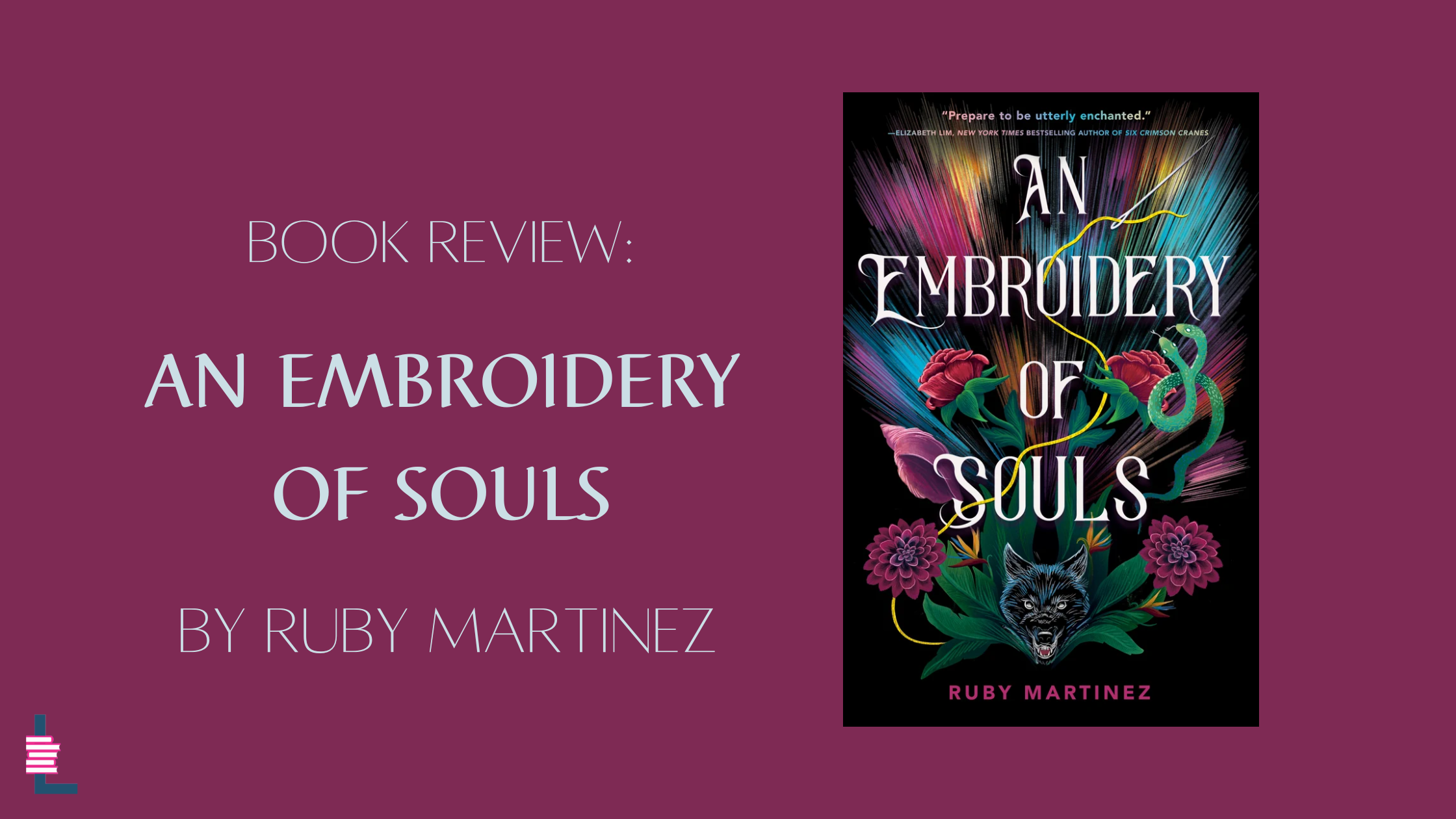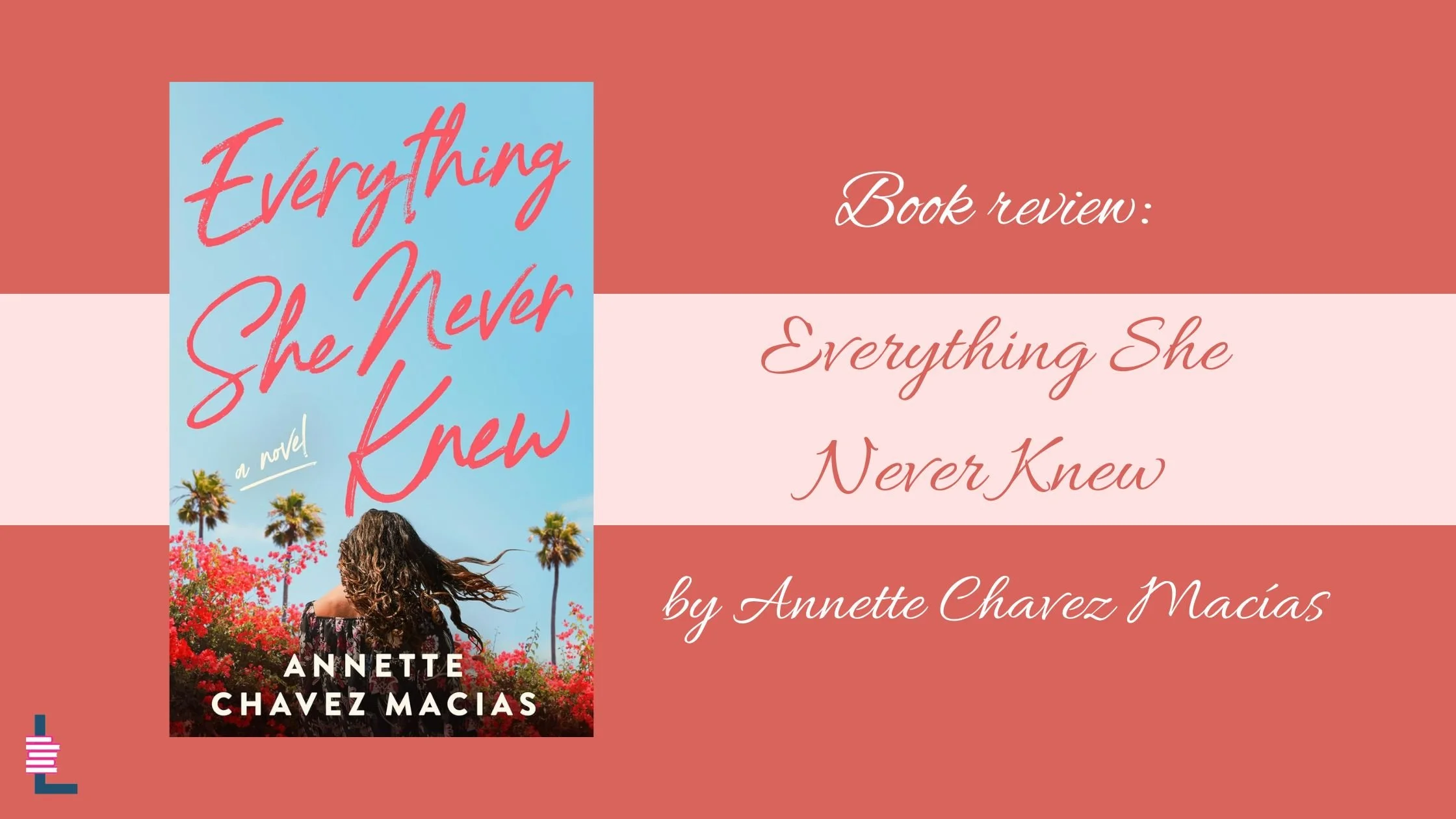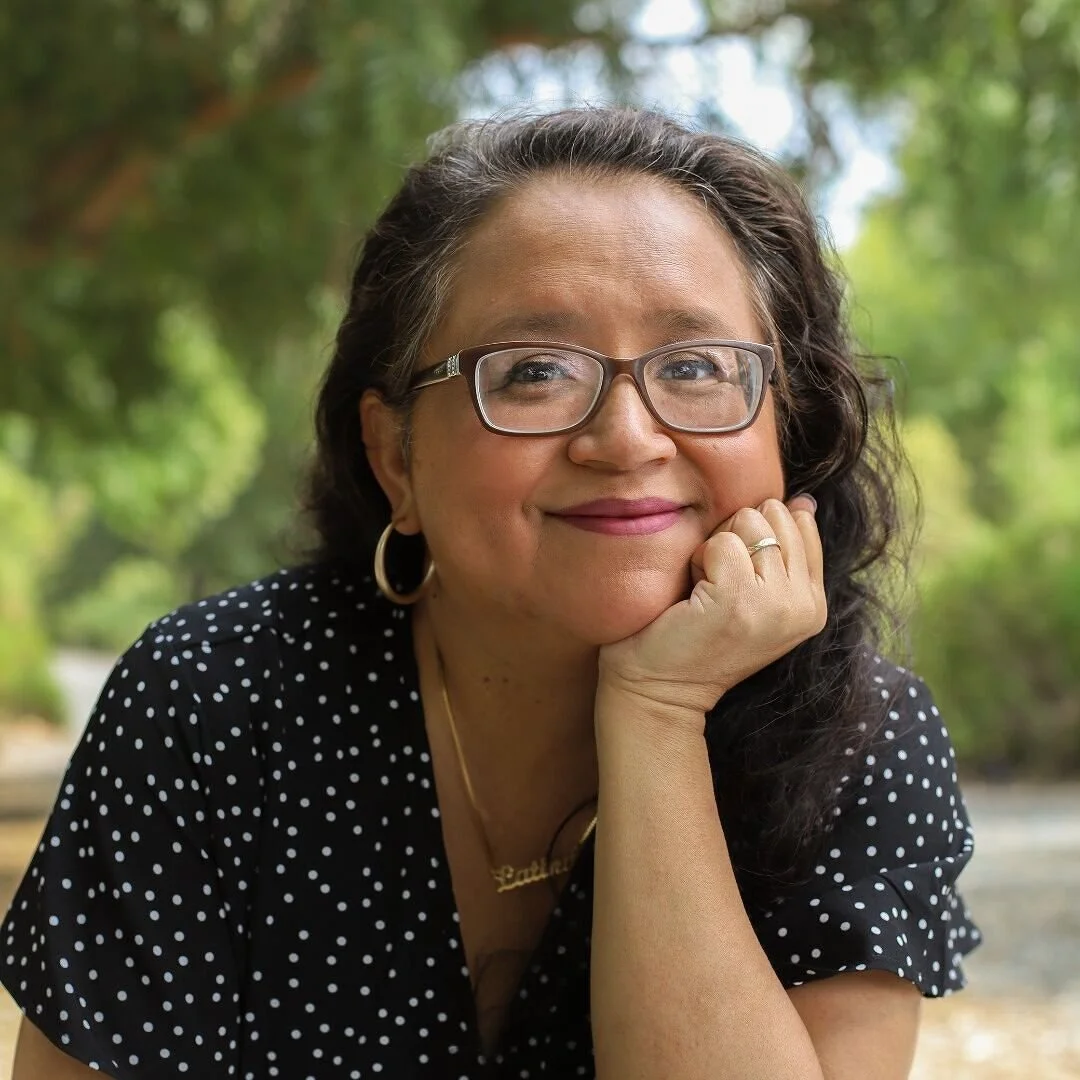Ruby Martinez’s debut YA novel, An Embroidery of Souls, traps you in a way only the most complex needlework could.
The story follows the dual POV of Jade Aguilar and Lukas Keller, two young people with too much emotional baggage to carry. Jade is a “thread speaker,” a person with magical abilities who can see the colored strings of your soul and manipulate them with only a needle and thread. She can take and give beauty, intelligence, and even life. In Mérecal, such power is controlled by Queen María-Celese Ríos, and the Crown’s control has kept Jade isolated, with her mom being her only companion. The problem is that Jade’s mom has gone missing, leaving her alone with the demanding queen and an ocean of fears she can’t control. Then we have Lukas, an immigrant boy who must take care of his family after his father’s passing. He struggles to make ends meet, and his desperation brings him down to the sewers, where the underground queen of the Serpensas, Cora Ramos, awaits with venomous fangs. Their unfortunate entanglement with royalty ultimately brings them together, as they must solve a series of seemingly supernatural murders that have Mérecal’s people in a sort of religious paranoia.
“Martinez’s prose is both beautiful and gut-wrenching, like a delicate thread and a sharp needle embroidering something both lovely and painful.”
With a hint of detective novel-like tropes, Martinez writes scenes packed with danger for our protagonists. They must overcome many external and internal challenges to discover the murderer’s identity. Each chapter ends in such a teasing moment that it is impossible to stop reading. Among all the chaos and high stakes, the author develops a sweet romance that sparkles with magic. Martinez cooks Jade and Lukas’s love ever so slowly; so much so that the slight steam might make your cheeks get rosy. However, your eyes might tear up as the pair deals with their respective darkness. With these deeply damaged characters, Martinez applies her knowledge as a therapist to explore their traumas, leaving little gems for the readers along the way. Many passages felt like my own therapist was talking to me; this way, Martinez reaches her readers with the same compassion and sternness only a mental health professional could.
Martinez’s prose is both beautiful and gut-wrenching, like a delicate thread and a sharp needle embroidering something both lovely and painful. If I were a thread speaker, I’m sure I would see Martinez’s soul full of violet strings of intelligence and merlot passion. I don’t know what the color for creativity is, but I am sure she also has that in abundance. And all her hues are stitched with care into this book.
An Embroidery of Souls is a kaleidoscope of sweet and sour moments that will not only have you rooting for Jade and Lukas’s journey together, but also for their individual healing.
Roxanna Cardenas Colmenares is a Venezuelan writer living in New York City who loves to consume, study, and create art. She explores multiple genres in her writing, with a special interest in horror and sci-fi, while working on her B.A. in English with a Creative Writing concentration.
Her work has made her a two-time recipient of the James Tolan Student Writing Award for her critical essays analyzing movies. She has also won The Henry Roth Award in Fiction, The Esther Unger Poetry Prize, and The Allan Danzig Memorial Award in Victorian Literature.
In her free time, she likes to watch movies, dance, and draw doodles that she hopes to be brave enough to share one day.

























